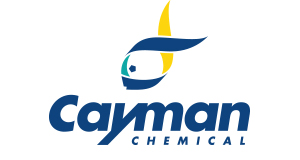Sunitinib (malate), CAS 341031-54-7
Sunitinib (malate), CAS 341031-54-7
Artikelnummer
CAY13159-5
Verpackungseinheit
5 mg
Hersteller
Cayman Chemical
Verfügbarkeit:
wird geladen...
Preis wird geladen...
Shelf life (days): 1460.0
Formulation: A crystalline solid
Formal Name: N-[2-(diethylamino)ethyl]-5-[(Z)-(5-fluoro-1,2-dihydro-2-oxo-3H-indol-3-ylidene)methyl]-2,4-dimethyl-1H-pyrrole-3-carboxamide, (2S)-hydroxy-butanedioic acid
Purity: ≥98%
Formula Markup: C22H27FN4O2 / C4H6O5
Formula Weight: 532.6
CAS Number: 341031-54-7
Notes: Sunitinib is a small molecule inhibitor of receptor tyrosine kinases, including FLK1 (Ki = 9 nM), PDGFRβ (Ki = 8 nM), and FLT3.{17043,17045} It is at least 10-fold selective for FLK1 and PDGFRβ over a variety of tyrosine kinases in a panel, including EGFR, Cdk2, Met, IGFR-1, Abl, and Src.{17045} Sunitinib inhibits VEGF-dependent FLK1 and PDGF-dependent PDGFRβ phosphorylation (IC50s = 10 and 10 nM, respectively) as well as phosphorylation of FLT3 and FLT3 carrying the activating internal tandem duplication mutation (FLT3-ITD; IC50s = 250 and 50 nM, respectively).{17043,17045} It decreases VEGF- and FGF-induced proliferation of human umbilical vein endothelial cells (HUVECs; IC50s = 30 and 700 nM, respectively) and reduces tumor growth in a variety of mouse xenograft models when administered at doses ranging from 20 to 80 mg/kg per day.{17045} Formulations containing sunitinib have been used in the treatment of gastrointestinal stromal tumors and metastatic renal cell carcinoma.
Formulation: A crystalline solid
Formal Name: N-[2-(diethylamino)ethyl]-5-[(Z)-(5-fluoro-1,2-dihydro-2-oxo-3H-indol-3-ylidene)methyl]-2,4-dimethyl-1H-pyrrole-3-carboxamide, (2S)-hydroxy-butanedioic acid
Purity: ≥98%
Formula Markup: C22H27FN4O2 / C4H6O5
Formula Weight: 532.6
CAS Number: 341031-54-7
Notes: Sunitinib is a small molecule inhibitor of receptor tyrosine kinases, including FLK1 (Ki = 9 nM), PDGFRβ (Ki = 8 nM), and FLT3.{17043,17045} It is at least 10-fold selective for FLK1 and PDGFRβ over a variety of tyrosine kinases in a panel, including EGFR, Cdk2, Met, IGFR-1, Abl, and Src.{17045} Sunitinib inhibits VEGF-dependent FLK1 and PDGF-dependent PDGFRβ phosphorylation (IC50s = 10 and 10 nM, respectively) as well as phosphorylation of FLT3 and FLT3 carrying the activating internal tandem duplication mutation (FLT3-ITD; IC50s = 250 and 50 nM, respectively).{17043,17045} It decreases VEGF- and FGF-induced proliferation of human umbilical vein endothelial cells (HUVECs; IC50s = 30 and 700 nM, respectively) and reduces tumor growth in a variety of mouse xenograft models when administered at doses ranging from 20 to 80 mg/kg per day.{17045} Formulations containing sunitinib have been used in the treatment of gastrointestinal stromal tumors and metastatic renal cell carcinoma.

 English
English










